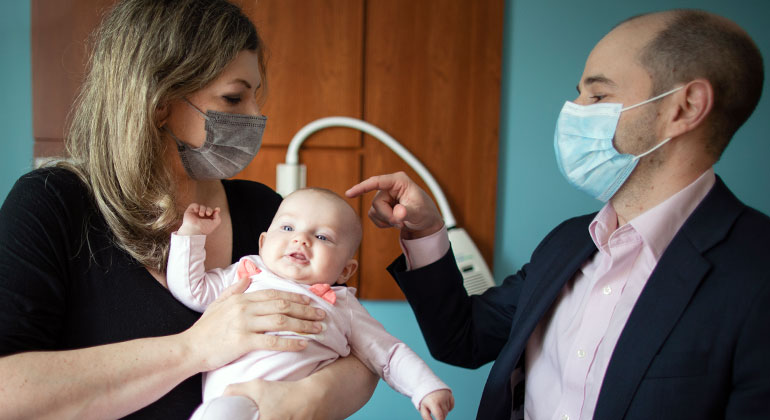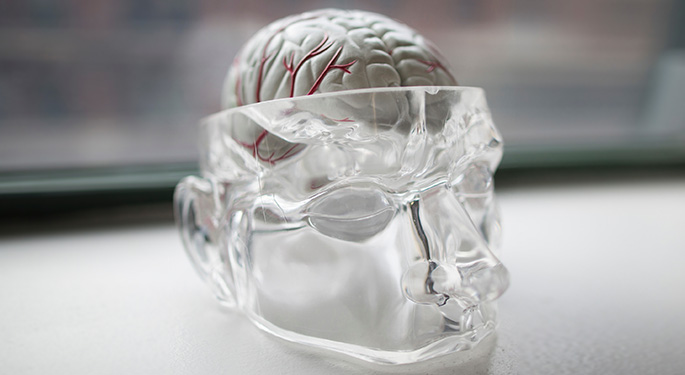Cranial Reconstruction


The Cranial Reconstruction Program at Mount Sinai treats a wide variety of patients. Many have acquired skull defects after head trauma or surgery while others may have birth defects or tumor involvement. There are also people who need surgery to remove a part of their skull to treat one condition – and then need cranial reconstruction afterward. At Mount Sinai, we use cranioplasty (cranial reconstruction surgery) to rebuild the shape of the skull to protect the brain from damage, improve appearance, and reduce pain.
Our program treats both simple and complex deformities. To do this, we use complex cranial modelling technology and digital software to provide patients with the best possible outcome, both medically and cosmetically. We work together with experts in plastic surgery, neurosurgery, rehabilitation, and neuroradiology as well as the Neurosurgery Simulation and Medical Modeling Cores.
Our Research
At Mount Sinai, we benefit from the research being done at our Neurosurgery Simulation and Medical Modeling Cores. These programs are investigating three-dimensional (3D) simulation for the generation of three-dimensional (3D) implants, which can help us develop custom-designed implants for our patients. Typically, we use a variety of materials to create these implants, including titanium, polymethylmethacrylate and hydroxyapatite (HA), and polyether ether ketone.
Using advanced 3D modeling of radiographic images, we can simulate and design cranioplasty grafts that were previously done by hand. This makes the implants more precise and also reduces rates of complications. We also use computer-aided design (CAD) to help us develop highly accurate skull phantoms and molds so that we can build prefabricated patient-specific cranial implants. We also use 3D printing to enable offer advanced training to neurosurgeons and to explain to patients what we are going to do and what they can expect during and after surgery.
Meet Our Team
Our faculty members are well known in New York City, nationally, and around the world for our grand-breaking work in neurosurgery. Along with our specialized mid-level clinical providers, we collaborate with anesthesiologists, rehabilitation specialists, and social workers to provide exceptional care to each of our patients.
Joshua B. Bederson, MD
Co-Director, Cranial Reconstruction Program
Professor and System Chair, Department of Neurosurgery
Clinical Director, Neurosurgery Simulation Core
Peter J. Taub, MD
Co-Director, Cranial Reconstruction Program
Professor, Departments of Surgery & Neurosurgery
Division of Plastic and Reconstructive Surgery
Peter F. Morgenstern, MD
Assistant Professor, Departments of Neurosurgery & Pediatrics
Raj K. Shrivastava, MD
Associate Professor, Departments of Neurosurgery & Otolaryngology
Konstantinos Margetis, MD
Associate Professor, Department of Neurosurgery
Thomas P. Naidich, MD
Professor, Departments of Radiology, Neurosurgery, and Pediatrics